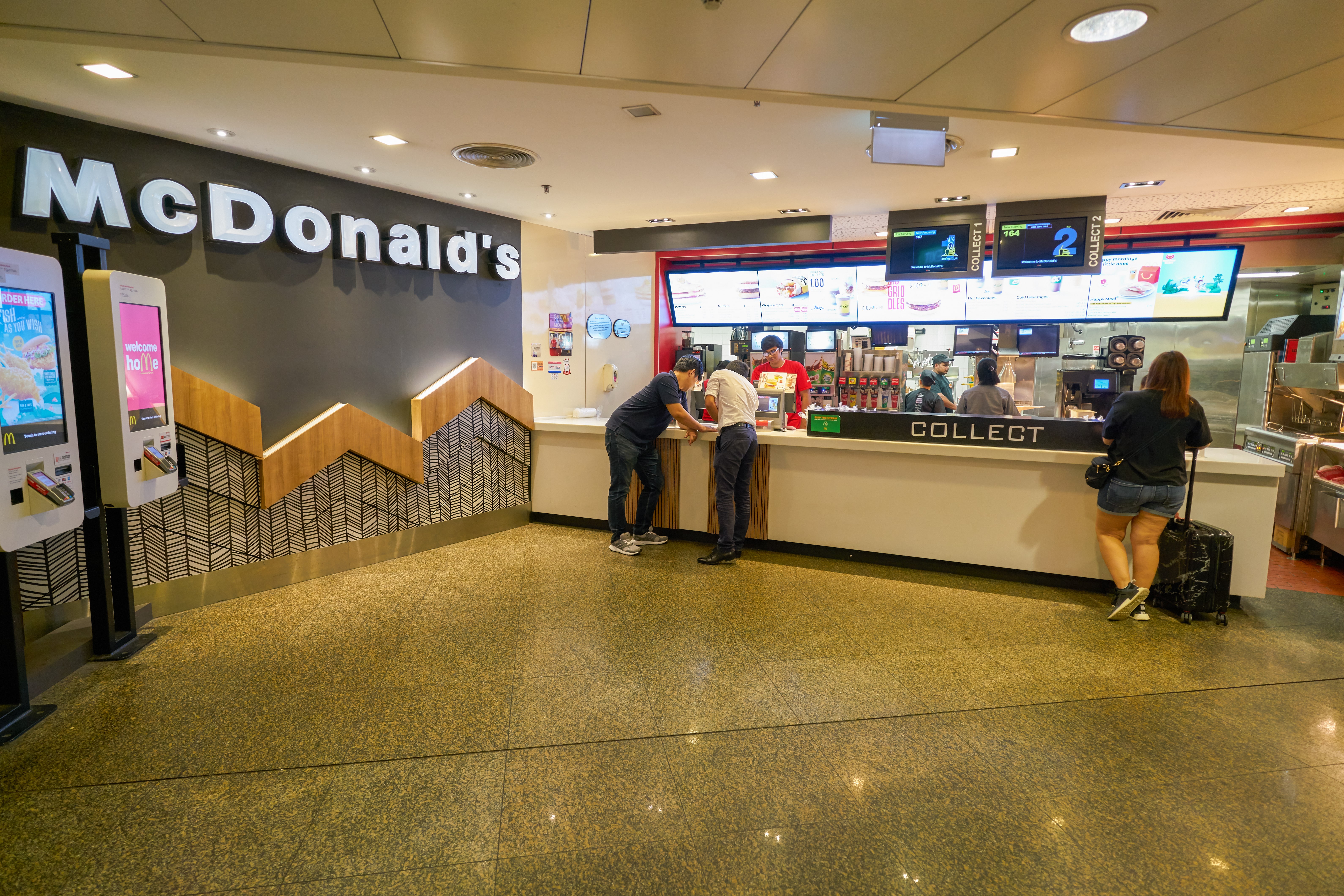
Almost exactly one month ago, US fast-food company McDonald’s announced it was introducing a contactless delivery service in Singapore to prevent the spread of Coronavirus Covid-19. At the time the number of coronavirus cases in Singapore was 89. The measures taken were unusual and newsworthy.
The fast-food giant stated that Singapore delivery riders will drop the order at the agreed location and will notify the customer. The delivery executive will stand at a distance until the customer collects the order to complete the delivery process. The press release went on to instruct customers to request contactless deliveries in the ‘Remarks’ section during the checkout process.
In addition to contactless deliveries, McDonald’s also initiated several other measures to restrict Covid-19 transmission. These included; frequent temperature checks for all delivery riders, and the requirement for drivers to wear masks and wash their hands before each delivery and sanitising delivery bags every two hours.
Tighter measures
A month on the whole world is taking unprecedented measures of more thorough hygiene, social distancing and self-isolation and these steps do not seem remarkable at all. Cases of Covid-19 have now proliferated around the world. In Singapore the official figure is 558 cases as of 24 March 2020.
“The adult population of Singapore [older Millennials and above] is mostly vigilant due to our shared experience of SARS-1,” says YW Lee, Associate FCSI member and senior partner at Alt24, a Singapore-based consultancy. “That being said, Singapore has just announced tighter measures including the closure of entertainment venues including bars and clubs. We Singaporeans rely a lot on our external dining culture day-to-day.”
The growth of home food delivery has been a noticeable trend across Asia for a few years.
Quarantine orders and self-isolation has helped fuel this growth. “This market movement [delivery] is helping to slow the bleed that foodservice operators are facing at the moment due to reduction of foot traffic in most places,” says Lee.
“Those most affected are small independent operators of casual dining, especially those based in CBD and downtown areas, as well as independent hawker operators.”
KFC and Pizza Hut, along with McDonald’s, are the three mainstays of fast food delivery models. They are opting to either use their delivery services, or maintain their own delivery logistics with the platform as a sales and marketing outreach tool.
“Strengthening takeaway or online food ordering now, will keep businesses in a stronger position to tap any growth opportunity when crisis is over,” says Kambu Ninad, foodservice analyst with GlobalData.
“In a recent initiative, DBS [the Singapore government bank] announced a new F&B digital relief package which will enable businesses to set up an online food ordering site in just three business days. This came as a huge relief to struggling outlets, especially the independent ones.”
Keeping workers safe
Another factor for introducing more stringent hygiene and contactless options is found in Singapore’s unique job market. With strict limits on guest workers, finding delivery personnel is not always easy.
As Lee explains: “Due to the intense competition that comes with demographic market saturation; innovation and customer experience has been a strong key to maintaining competitiveness. Operators of delivery platforms are also fighting for talent, so ensuring a high volume of orders and the safety of their delivery freelancers are key.”
As of 26 March 2020 the Singapore government has announced it will close bars and entertainment venues including discos and cinemas among new measures to curb the spread of the coronavirus. The new measures include limiting gatherings outside work and school to fewer than 10 people. Malls and museums will continue to stay open, but with reduced capacity and other precautions.
“With the closure of all entertainment outlets the guidelines also state that F&B outlets must have at least one metre between tables and groups of diners limited to 10,” says GlobalData’s Ninad.
“At the same time, the F&B outlets, delivery companies, and platform service providers are aggressively focussing on ‘delivery’ as the best opportunity in the shifting business landscape.”
With many Europe countries are now on lockdown, with far more strict measures than those announced in Singapore. McDonald’s in the UK closed all its establishment – even takeaway and delivery – on 23 March. All that remains to be seen is what the landscape will look like in another month’s time.
Jacquetta Picton
Pictured (main): McDonald’s at Changi International Airport, Singapore
